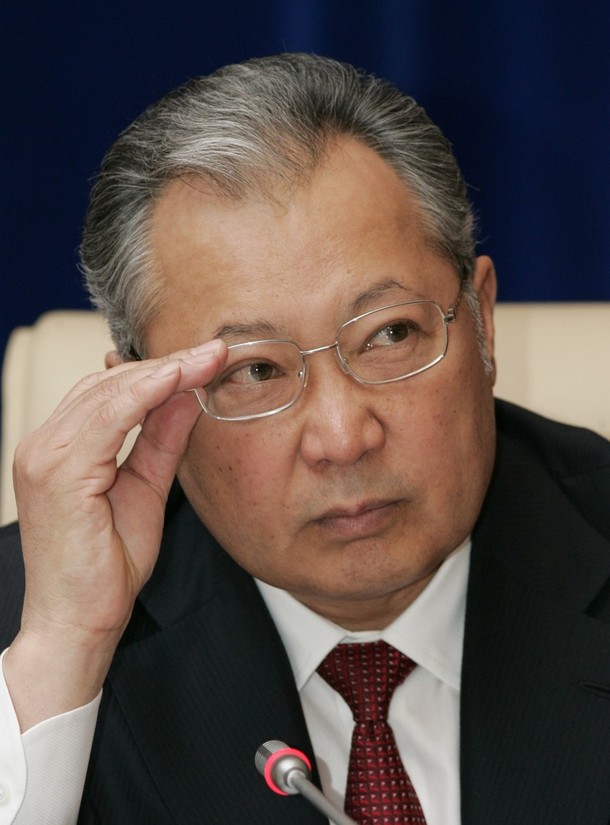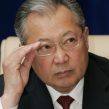
Is Bakiyev a Reliable Partner?
Publication: Eurasia Daily Monitor Volume: 6 Issue: 128
By:

During his four-year reign the Kyrgyz President Kurmanbek Bakiyev has behaved unpredictably both in domestic and international policy. Domestically, the president alienated most of his former supporters by gradually stripping them of power. Internationally, Bakiyev has maneuvered around the issue of the Manas airbase, where the U.S. rents space for its troops involved in anti-terrorist operations in Afghanistan.
In February Bakiyev sought to expel the United States military from Manas, only to change his mind in June after an agreement was reached to increase rental payment from $17 million to $60 million by U.S. government. Following Bakiyev’s recent agreement with Washington on Manas, the question remains as to how reliable a partner Bakiyev will be in the future.
The Kyrgyz president has toyed with the idea of evicting the U.S. military since he first took office. The pressure stemming from Russia was indeed a considerable factor in this interplay, with both Bishkek and Moscow looking for possibilities of mutually-beneficial collaboration. Yet, the latest maneuvering around the U.S. base issue demonstrated that Bakiyev has been primarily guided by promoting his personal interests.
Bakiyev does not have any sizable domestic pressure to evict either the U.S. or Russian airbases. There are indeed strong anti-Western views permeating among political and military officials in Kyrgyzstan who believe that the U.S. is still hoping to destabilize the former Soviet space. Most of them are influenced by Moscow’s depiction of the West in the mass media and its official policy.
Nonetheless, there are business elites in Bishkek who are genuinely interested in keeping the U.S. base in Bishkek. Entrepreneurs both allied and separate from the regime benefit from the financial inflows stemming from the base. The range of services provided to the U.S. facility includes cargo transportation, supplying food products and the sale of gas. Although it is difficult to estimate how much of the payments associated with the U.S. base fuels the regime’s strength, it is safe to say that along with other resources such as illegal hydropower and gold exports, the base represents a current or potential source of financial empowerment.
Of all the major benefactors of the U.S. military presence in Bishkek it was the regime itself that was able to raise payments for the base in recent years. This tradition of the regime benefiting from the U.S. and NATO presence began during the regime of the former president Askar Akayev.
Before gaining power in March 2005, Bakiyev found himself obliged to indentify his policy priorities. The decision to nominate Bakiyev as president was made hastily by a small group of opposition members when they unexpectedly defeated the previous regime. Since then, Bakiyev has been shifting his emphasis on cooperation between Russia, Kazakhstan, China and the United States. Even his change of stance on the U.S. base defied following any set of foreign policy principles or priorities. In February the president had argued that the base was no longer necessary, since Afghanistan was becoming more stabilized. In June, however, he claimed that Afghanistan needs Kyrgyzstan’s participation in the international anti-terrorist campaign (EDM, June 26).
The current agreement between the U.S. and Kyrgyzstan precludes changes for the next five years (www.24.kg, June 25). But this stature does not guarantee Bakiyev’s strict obedience. His regime might face new domestic and regional challenges, in which case the president will need to resort to all available means. Seeking Russia’s support is the most likely option he would choose, because Kyrgyzstan is part of a number of regional initiatives in which Russia is the leader. Given that the Russian public reacted negatively to Bakiyev’s recent about-face, the president will need to submit to Moscow’s demands more than before.
In the meantime, while the U.S. government has succeeded in preserving the Manas base, the domestic democratic record in Kyrgyzstan has worsened. Bakiyev appears to be a leader unconstrained by domestic pressures, and able to pursue personally favored foreign policy options. The president’s freedom in the foreign policy domain undermines local initiatives to oppose the regime. Lacking any ability to influence decision making, opposition MP’s and their parties accept the idea that Bakiyev will rule for many years to come. Bakiyev is not seriously challenged by opposition leaders as the July 23 elections approach. A number of prominent opposition leaders, including Bakyt Beshimov from the Social Democratic Party, believe that Bakiyev’s gambling on the Manas base was closely linked to his wish to be re-elected. Next time Bakiyev challenges the U.S. base or favors one international partner over another, it is going to follow a set pattern – the president’s struggle for the regime’s continuity.




